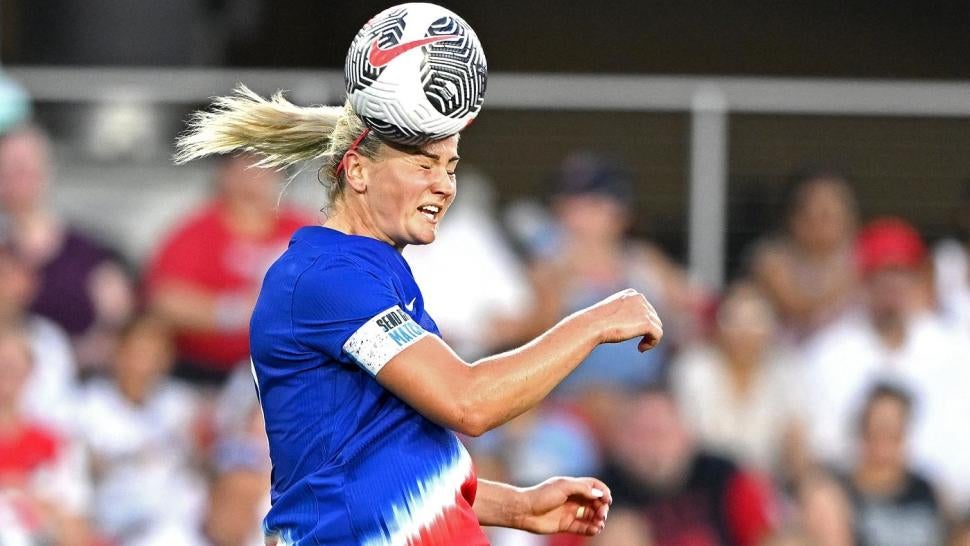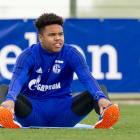The U.S. women's national team tied 0-0 with Costa Rica on Tuesday at Audi Field, forcing questions of the group's offensive output in their final match before the Olympics begin next week.
Head coach Emma Hayes made just one change from theri 1-0 win over Mexico on Saturday, with Crystal Dunn coming in for Jenna Nighswonger. It meant Hayes entrusted the trio of Sophia Smith, Mallory Swanson and Trinity Rodman with major attacking responsibilities in their third start together. The group delivered some promising moments and so the team combined for 10 shots, six on target in the first half but looked a bit disjointed and less fluid doing so.
The intensity picked up in the second half but as the team racked up shots, they struggled to put the ball in the back of the net. Costa Rica goalkeeper Noelia Bermudez was crucial in keeping a clean sheet for her side by making 12 saves, but the U.S. lacked execution both in passes and shots in the final third. Even the 16 corners they earned were to no avail, with very few of those set pieces offering meaningful scoring chances.
The U.S. return to action on July 25, when they face Zambia in their opening game of the Olympics.
Sputtering attack
For a second game running, the USWNT lacked accuracy in the final third. It was not for a lack of trying with 26 shots and 12 on target, but even as they consistently carved out promising opportunities in front of goal, execution left something to be desired. The U.S. got into a frustrating habit in the second half in which one player would create a promising moment with a nice run, frequently passing to a teammate who was not able to put the shot on target. In some cases, players were misplacing passes that looked certain to result in a promising goalscoring opportunity for the intended teammate.
Some credit must go to Costa Rica goalkeeper Bermudez, who made 12 saves on Tuesday, but the performance also reflects some deeper-lying issues for the USWNT. They improved from Saturday's 1-0 win over Mexico, in which they put just six of their 17 shots on target, but clearly have yet to find fluidity in attack. The set pieces were not much of a strength, either, even if they have been one of the team's staples in the past and something Hayes wants to build upon.
It will be fascinating to follow Hayes as she tinkers with the attack, something she and her players admitted needed work post-match on Saturday. Hayes said that day that adapting is her favorite part of the job and after a few friendlies, new ideas might be in store 10 days from now in the south of France.
Fitness watch
Rose Lavelle was originally named to the starting lineup but was scrapped shortly before kickoff after feeling tightness in her leg and Korbin Albert came on in her place. Though the team stressed that it was not a serious issue, the watch is now on to see if this lingers long enough to impact her minutes at the Olympics. The new rule change at the Games might come into play -- teams now have the option to temporarily replace a rostered player with an alternate on a game-by-game basis as long as they provide six hours' notice -- though it is still too early to speculate.
Lavelle's club and country teammate Nighswonger, meanwhile, sat out this game entirely as the coaching staff manages her minute load. That is less concerning than Lavelle -- if there's anything to be concerned about -- but it meant Hayes played Dunn as a left back, even though she was named as a forward to the roster. It was an example of why Dunn felt like a lock for the Olympics, with her versatility being crucial on an 18-player roster. Nighswonger is still likely the first choice in that position, both from a defensive and attacking standpoint.
![[object Object] Logo](https://sportshub.cbsistatic.com/i/2020/04/22/e9ceb731-8b3f-4c60-98fe-090ab66a2997/screen-shot-2020-04-22-at-11-04-56-am.png)












